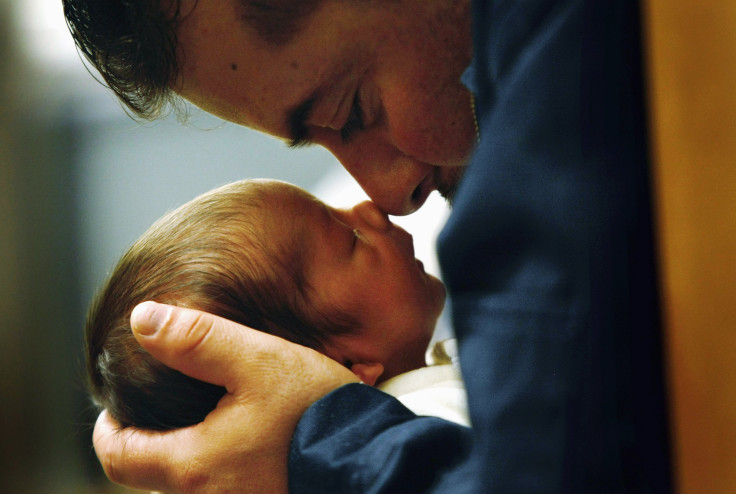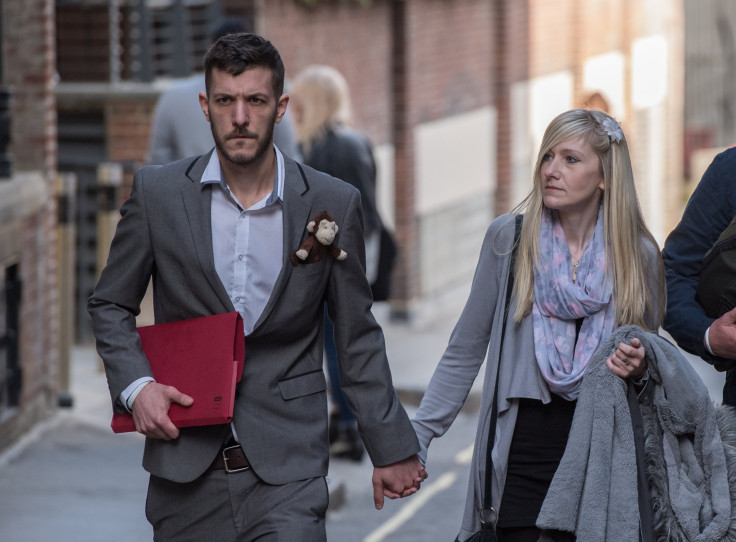Charlie Gard, 10-Month-Old Child To Be Taken Off Life-Support After Parents Lose Legal Battle In UK

The European Court of Human Rights ruled Tuesday that Charlie Gard, who suffers from a rare genetic disorder, will not be allowed to go to the United States to seek experimental treatment. Additionally, the ruling said Great Ormond Street hospital in London was no longer obligated to keep Grad on life support.
Gard was born in August 2016 with a rare genetic condition known as mitochondrial DNA depletion syndrome. The condition leads to muscles and organ dysfunction and cerebral disorders, CNN reported. Since no other treatment was effective in Gard’s case, his parents wanted to take him to the U.S. where he was supposed to receive an experimental treatment called nucleoside bypass therapy.
Gard’s parents requested Great Ormond Street hospital to release their son so they can take him to the U.S. for the treatment. However, the hospital declined the proposal stating the suggested treatment may not be the best course of action given the infant’s condition.
According to the British Medical Association, when there is a disagreement regarding a child’s medical care between a parent and the concerning doctor, courts may intervene to decide what would be in the child's best interest.
Read: United Airlines Apologizes To Colorado Mother Whose Infant Son Fell Ill Aboard Delayed Flight

Grad’s parents had previously appealed to the U.K. Supreme Court but were turned down. After which, they took their case to European Court of Human Rights, an international court based in Strasbourg, France.
Neither has the experimental treatment been proven to be effective every time in the past nor has it been ever used to treat mitochondrial DNA depletion syndrome. However, bioethicist Julian Savulescu of the Oxford Uehiro Centre for Practical Ethics had suggested that Gard should have a chance to try it out since he has “nothing to lose but potentially a healthier, happier life to gain.”
The medical procedure involved Gard being prescribed a certain oral medication that would provide the infant with naturally occurring compounds in the human body, aimed at aiding Gard rectify his flawed mitochondrial genes.
The European Court had initially granted Grad a three week-extension, until July 10, when it came to continuing aiding him with life support. The court’s extension was revoked with the final decision Tuesday. Despite the court’s ruling, the hospital has stated that it would not “rush .... to change Charlie’s care” because any changes made to Gard would “involve careful planning and discussion,” the Guardian reported.
"The domestic courts concluded that it would be lawful for the hospital to withdraw life sustaining treatment because it was likely that Charlie would suffer significant harm if his present suffering was prolonged without any realistic prospect of improvement, and the experimental therapy would be of no effective benefit," a press release from the court announcing the decision said.
The press release further stated that after consulting with Gard’s health care providers, independent medical experts as well as doctors recommended by the family of the infant, the court reached the decision that further experiments done on the infant would only increase the pain and distress that the child was already facing.
Read: Genene Jones, Ex-Texas Nurse Accused Of Killing Dozens Of Babies, Charged Again In Infant's Death
"…it was most likely Charlie was being exposed to continued pain, suffering and distress and that undergoing experimental treatment with no prospects of success would offer no benefit, and continue to cause him significant harm,” the statement said.
Dominic Wilkinson, director of medical ethics at the Oxford Uehiro Centre said that even though the parents of a child traditionally has the last word on what treatment he/she should received, there are cases when courts or doctors end up making the final call.
"However, there are limits," Wilkinson wrote in a recent editorial about Charlie's case published in The Lancet, a medical journal. "Sadly, reluctantly, doctors and judges do sometimes conclude -- and are justified in concluding -- that slim chances of life are not always better than dying."
Gard’s parents wanted the hospital to release him into their custody so they can take him to the U.S. for the treatment but the institution refused to do so because they did not agree that it would be the best course of action, given the infant’s condition. According to the British Medical Association, when there is a disagreement between a parent and the concerning doctor, regarding a child’s medical care, courts may intervene to decide what would be the child's best interest.
Gard’s parents wanted the hospital to release him into their custody so they can take him to the U.S. for the treatment but the institution refused to do so because they did not agree that it would be the best course of action, given the infant’s condition. According to the British Medical Association, when there is a disagreement between a parent and the concerning doctor, regarding a child’s medical care, courts may intervene to decide what would be the child's best interest.
© Copyright IBTimes 2024. All rights reserved.





















